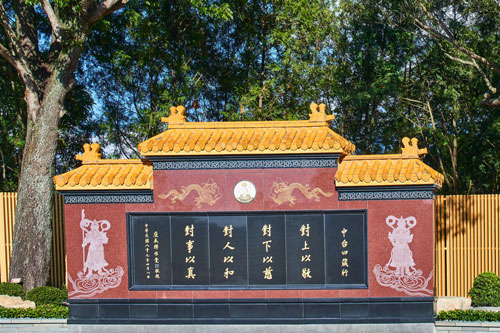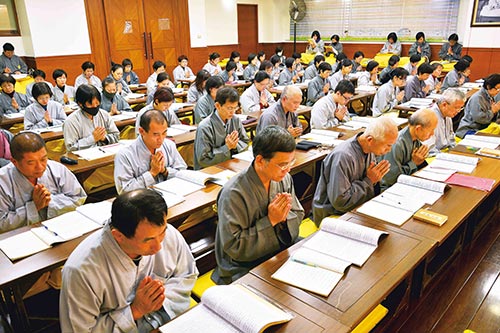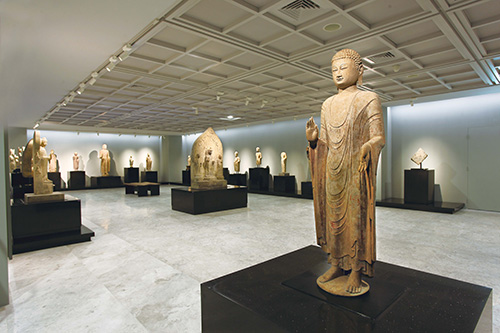

The Buddhadharma is infinitely vast and profound, but with the guiding principles of Chung Tai, the Grand Master Weichueh encapsulates its core tenets into practical methods of cultivation. They are the Three Links of Cultivation, the Four Tenets of Chung Tai, and the Five Approaches for Sharing the Dharma. These principles form the foundation of Buddhist practice at Chung Tai.

The Pillars of Holistic Spiritual Practice
The Buddhist sutras say, “Those who wish to realize the Way should cultivate three things: scripture study, meritorious service, and meditation.” These are the Three Links of Cultivation.
Together these links form the bedrock of an effective Buddhist practice. Each link complements and reinforces the other two on the path to enlightenment; they are not separate learnings, but different aspects of a whole. Scripture study helps us develop right views and clear understanding; meritorious service increases our merits as provisions for the path; meditation calms, clears, and awakens the mind. The benefits of these three links are truly realized when integrated as one in everyday practice.
By cultivating according to the three links, we apply the Dharma in our daily activities and strive towards enlightenment on the bodhisattva path, through the practice of benefitting oneself by benefitting others.

Buddhism in Daily Life
Even the subtlest and most profound Chan teachings are inseparable from the way we conduct ourselves in daily life. The Four Tenets of Chung Tai are guidelines for harnessing the wisdom of Buddhadharma in our everyday interactions.
To our elders be respectful:
Dispel arrogance with respect.
To our juniors be kind:
Counteract anger with compassion.
With all humanity be harmonious:
Dissolve conflict with harmony.
In all endeavors be true:
Eradicate pretense and deceit with truthfulness



How Buddhism Can Flourish in the Modern World
In today’s multifaceted society, Buddhism must use a variety of approaches to reach people from different walks of life. With deep sensitivity to the needs of modern people, the Grand Master pioneered these five ways to spread the Dharma.
Buddhism in daily living:
Buddhism in daily living is to live with awareness. Wherever we are, that is where the mind is. This is an essential teaching to guide us in our cultivation.
Buddhism in education:
Learning the Dharma is an education that helps us cultivate mindfulness and awakening. In the Buddhist spirit of learning to realize enlightenment, Chung Tai promotes the Dharma through monastic education, social education, and scholastic education.
Buddhism in arts:
The Dharma can not only be expressed through language and experienced in meditation, it can also be conveyed with form. Architectural design, sculpture, and landscaping are a few mediums through which Chung Tai spreads the Buddhist teachings.
Buddhism in science:
Buddhism and science share a symbiotic relationship of mutual growth and enrichment. Buddhist wisdom can inform scientific discoveries, while science can affirm and support Buddhist cultivation.
Buddhism in academia:
Buddhism and the academic world also influence each other for the better. Buddhist values guide scholars in pursuing research that benefits humanity. Traditional methods of scholarship can be applied to scripture study to deepen one’s understanding of the Dharma.